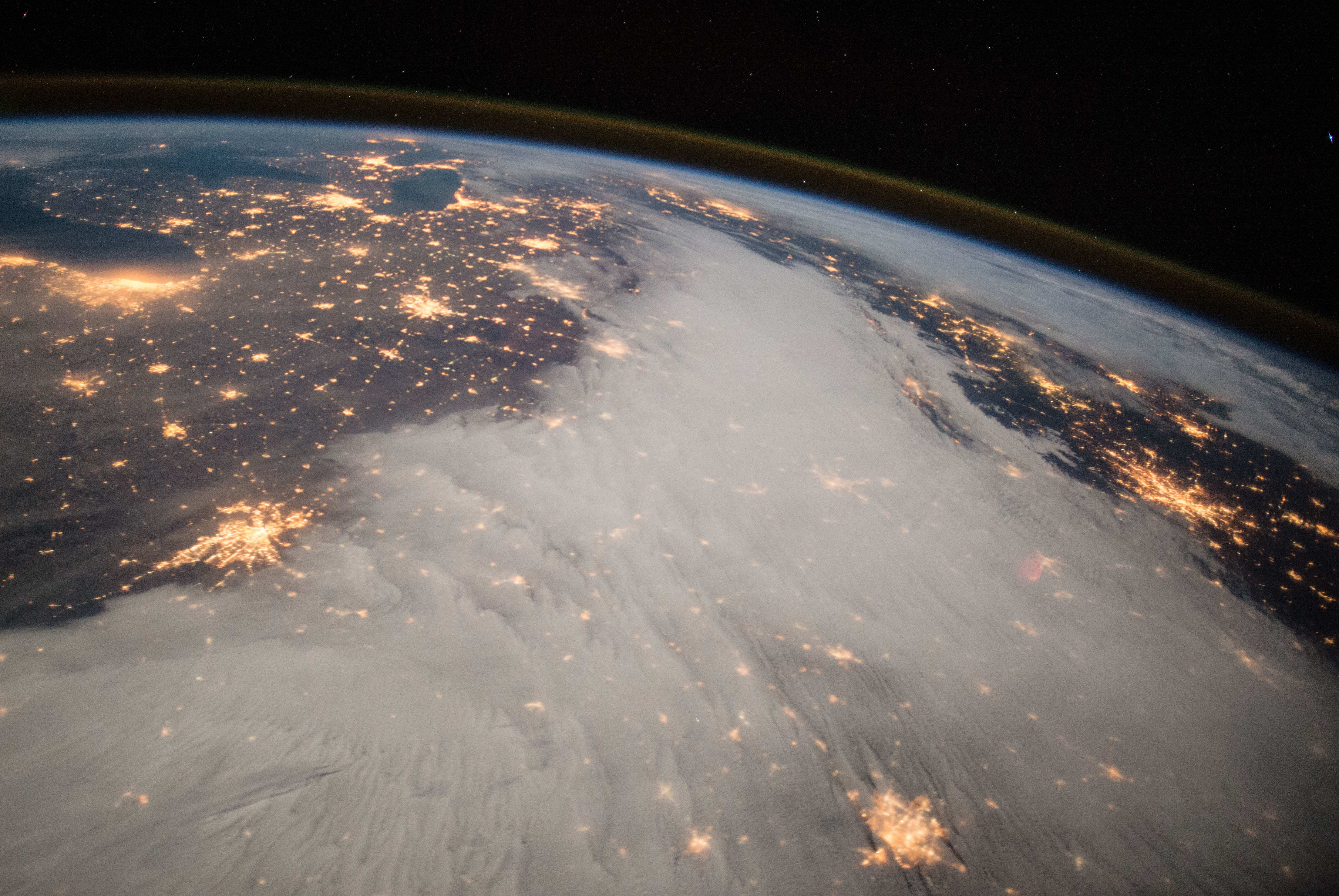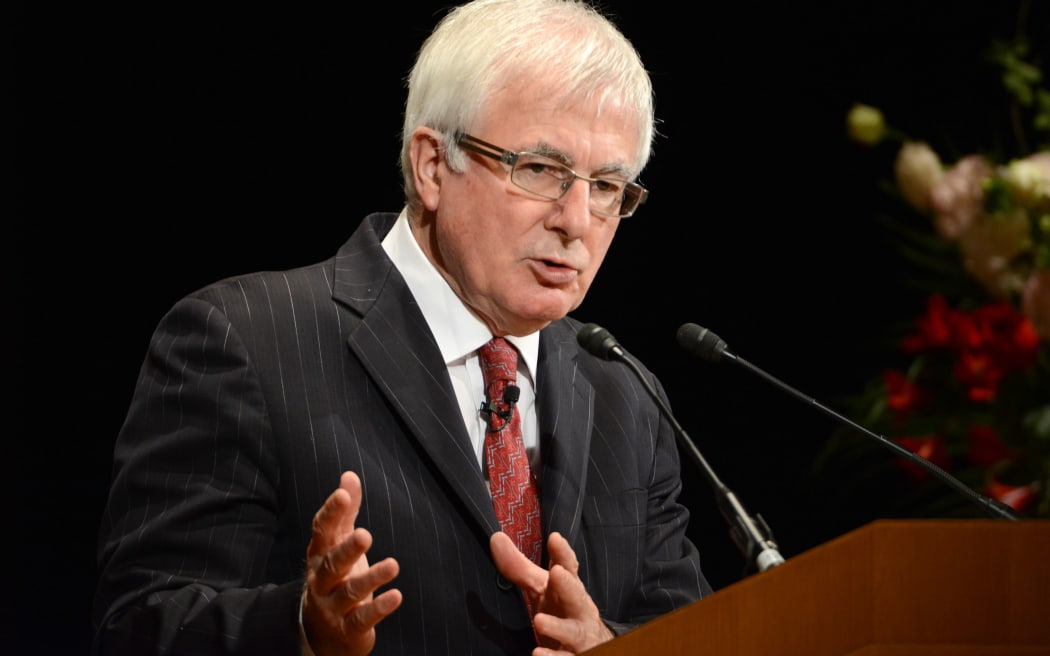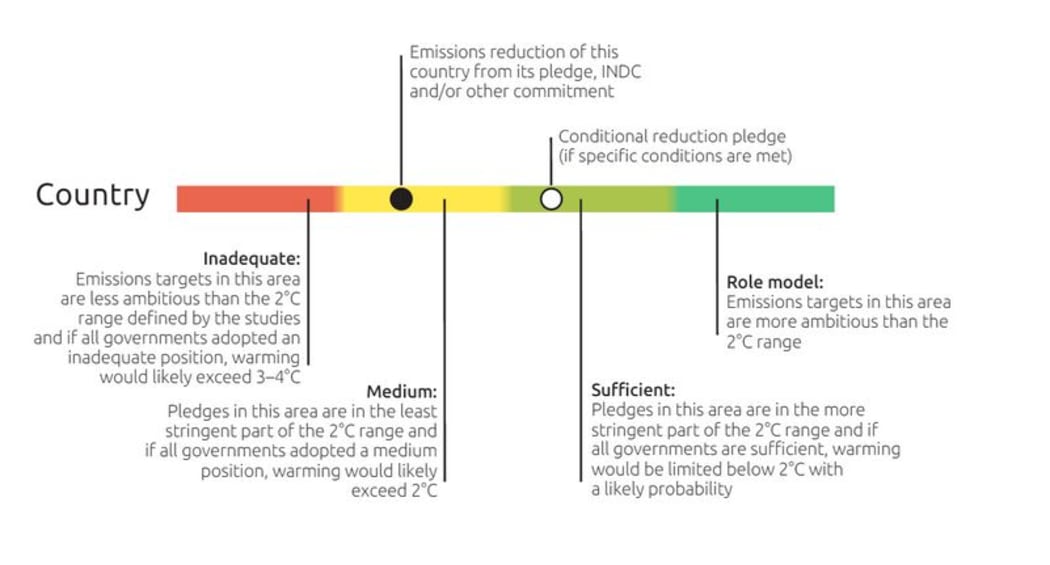A international group of scientists based in Europe says New Zealand is not doing its fair share to combat climate change.

The EU, US (pictured) and China are all doing better than New Zealand, according to Climate Action Tracker. Photo: AFP / NASA
The comments follow the Government's pledge last week to reduce greenhouse gas emissions to 30 percent below the level of 2005 by the year 2030.
The Government says this is a significant increase on current targets but it is still only 11 percent below 1990 levels, which is a more commonly used date for calibration.
This effort has been rated as inadequate by a group known as Climate Action Tracker.
Other countries deemed inadequate include Australia, Canada and Russia.
The EU, US and China all do better than New Zealand.

Minister for Climate Change Issues Tim Groser said New Zealand had fewer options for reducing emissions. Photo: AFP
Climate Action Tracker co-ordinates the findings of four independent European research organisations: Climate Analytics, Ecofys, NewClimate Institute and the Potsdam Institute for Climate Impact Research.
It assesses all major countries' efforts and gives them a grading.
The group said world leaders had committed to a rise of no more than 2°C in average world temperatures.
But Climate Action Tracker said if most other countries took the same path as New Zealand, temperatures would rise by 3-4°C.
It said that could cause ocean acidification, the loss of coral reefs, rising sea levels and widespread species extinction.

A screenshot from Climate Action Tracker's website shows its rating system. Photo: Climate Action Tracker
Climate Analytics CEO and senior scientist Bill Hare said New Zealand's commitment needed to be greater, to be on a par with the US or the European Union.
"New Zealand's climate target shows it's far from doing its 'fair share', and is anything but ambitious," he said.
"While most other governments intend cutting emissions, New Zealand appears to be increasing emissions, and hiding this through creative accounting. It may not have to take any action at all to meet either its 2020 or 2030 targets."
Professor Kornelis Blok of Ecofys was also critical.
"New Zealand's climate policy is projected to head in the opposite direction from the world's biggest emitters such as China, the United States and the European Union," he said.
"It has taken little or no action on climate change since 2008 - except for watering down its ETS, and we can find no evidence of any policies that would change this."
Dr Louise Jeffery from the Potsdam Institute for Climate Impact Research said "accounting credits claimed by New Zealand to meet its 2020 target could see emissions (excluding forestry) increase without constraint to 32 percent above 1990 levels by 2020, rather than decreasing below 1990 levels".
Not easy to cut emissions - Minister
The New Zealand pledge will be submitted to the United Nations Framework Convention on Climate Change (UNFCCC).
All countries are expected to table targets as part of work towards a new climate change agreement, due to be concluded in Paris in December.
In announcing the figure, Minister for Climate Change Issues Tim Groser said it was not easy for New Zealand to reduce emissions.
"Almost 80 percent of our electricity is renewable already, and around half our emissions come from producing food, for which there aren't yet cost-effective technologies to reduce emissions. So there are fewer opportunities for New Zealand to reduce its emissions right now", he said.
"However, I'm optimistic about the future - our investment in agricultural research is beginning to bear fruit, and the cost of electric and plug-in hybrid vehicles continues to fall. I think in five to 10 years, we'll be in a good position to reduce our emissions in both agriculture and transport.
"In setting the new target, the Government needed to ensure it was achievable and to avoid imposing unfair costs on any particular sector or group of people."
The New Zealand target will be open to submissions.



